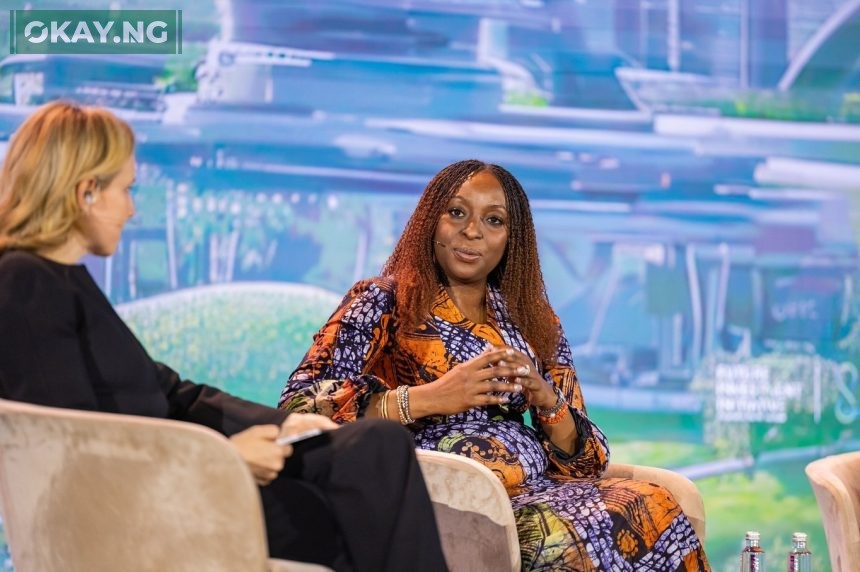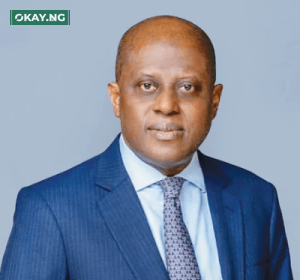Dr. Owen Omogiafo, President and Group CEO of Transnational Corporation Plc (Transcorp), made a compelling case for equitable energy access and gender-inclusive leadership in the energy sector during the Herizon Summit, a key part of the Future Investment Initiative (FII) in Riyadh.
Speaking on the panel titled “The Green Transition: How Can Women Power Sustainable Supply Chains?”, Omogiafo emphasized the need to balance sustainability goals with urgent energy demands in underpowered regions, such as Africa.
Omogiafo highlighted the critical energy gap in Africa, where millions lack reliable power, affecting essential sectors like healthcare, education, and economic growth. “For Africa and many developing regions, the conversation around energy transition must prioritize access,” she said. She emphasized the importance of making energy both affordable and sustainable through investments aimed at bridging this gap, citing Transcorp’s ongoing efforts in Nigeria.
Addressing the complexities of building a green supply chain, Omogiafo explained that while progress is essential, the road to achieving net-zero emissions remains complicated. She noted that current technologies, like electric vehicles and renewable energy sources, still rely on fossil fuels at various stages. “Our focus must be on refining our current systems, enhancing energy efficiency, and ensuring that progress towards sustainability does not neglect critical infrastructure that communities depend on for basic needs,” she added.
Omogiafo also explored the role of Artificial Intelligence (AI) in transforming the energy sector, particularly in operational efficiency and predictive maintenance. She explained how AI is helping to anticipate maintenance needs, thus avoiding costly downtimes and extending the lifespan of machines. “This brings better service and reliability to our customers,” she said.
The panel also discussed the growing impact of women in the energy transition. Omogiafo, the first female Group CEO of Transcorp, shared insights from her leadership journey and championed the role of women in traditionally male-dominated industries. She cited Transcorp’s “Intern X” program, which introduces young women to power plant operations and management, as part of the company’s commitment to gender inclusion. “Women are natural nurturers and have a unique leadership style that prioritizes community welfare and environmental sustainability—qualities that align well with the goals of a green transition,” Omogiafo said.
In addition to discussing Transcorp’s initiatives, Omogiafo acknowledged programs like the Tony Elumelu Foundation Entrepreneurship Program, which have bolstered female participation in green energy sectors. She noted that women now represent a significant portion of new entrants into these industries, contributing to a more inclusive and sustainable energy future.
On an Energy Transition Panel, Omogiafo stressed the importance of financing Africa’s energy transition while addressing global energy security. She urged a pragmatic approach, noting that “energy transition is a luxury when you are poor” and calling for investments that address Africa’s immediate energy needs, particularly for its young population. “We need to bridge the energy poverty that exists on our continent,” she said.
Using Transcorp’s successes in Nigeria as an example, Omogiafo demonstrated the profitability of investing in Africa’s energy sector. She cited Transcorp’s acquisition of a power plant for $300 million, which has since grown to a market cap of $1.7 billion, reflecting the immense potential of the industry. Sustainable energy investments in Africa, she said, are not only necessary but also highly profitable, citing a 5,000% return on equity for early investors.
Responding to criticisms of Africa’s use of hydrocarbon resources, Omogiafo stressed the need to balance environmental and economic goals. “Africa has hydrocarbons, and we must invest in the technology and processes to harness these resources sustainably,” she said.
Dr. Omogiafo concluded with a call to reframe the energy debate. “Instead of energy transition, let’s talk about energy addition, where we bridge the gap between energy poverty and sustainable solutions,” she said, urging governments and international stakeholders to develop flexible energy policies that are grounded in data and sensitive to local needs.
Her remarks resonated with the summit’s audience, reinforcing her commitment to fostering sustainable, inclusive energy solutions that improve lives across Africa. “A green future can only be meaningful when it is accessible to all,” Omogiafo concluded.












